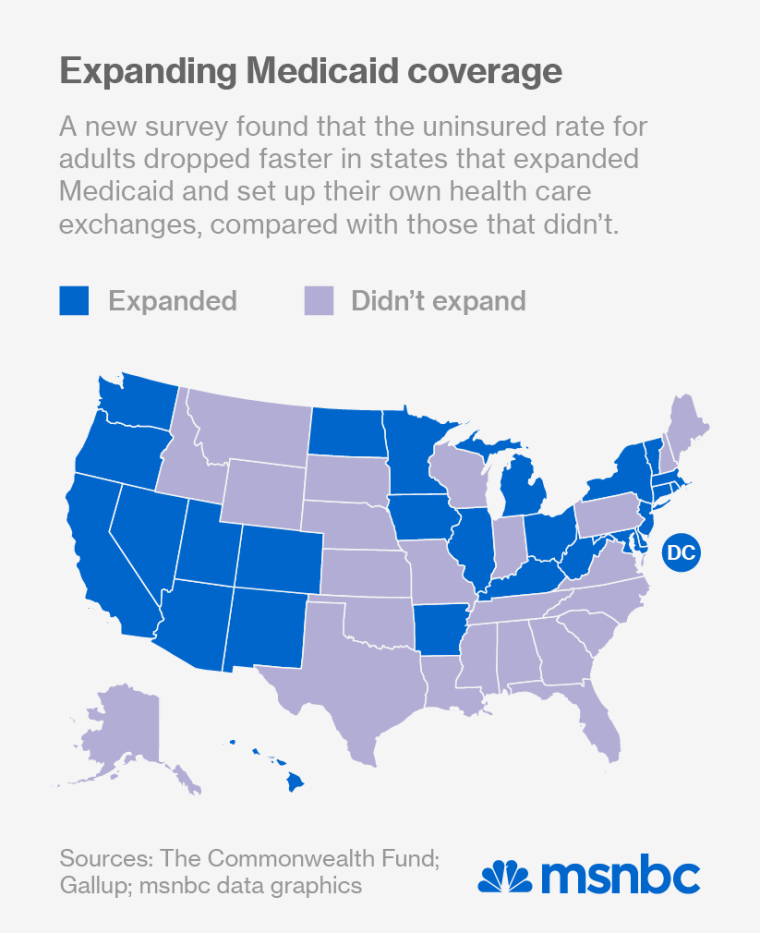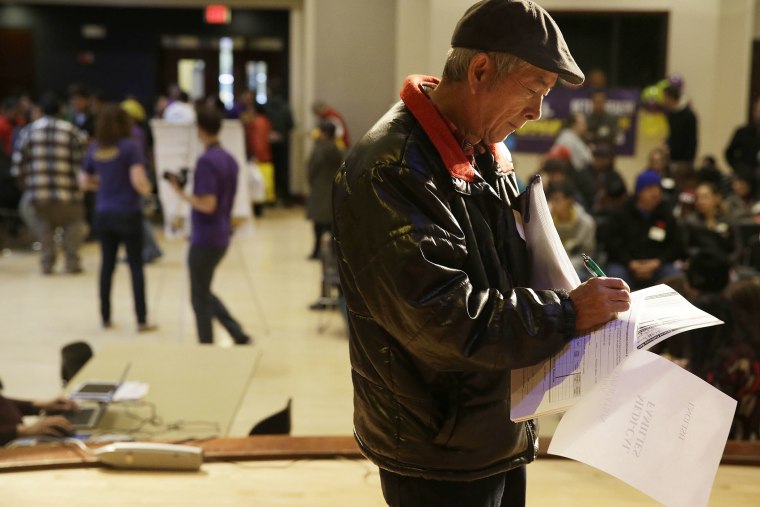The more that states embrace the Affordable Care Act (ACA), the better it works.
That's the takeaway from a new Gallup survey that compared uninsured rates among adults in two kinds of states: those which have enacted two, central ACA provisions, and those which have not. Uninsured rates declined significantly more in the former than the latter.
The uninsured rate for those 18 and older dropped by 2.5% on average in the 21 states, and Washington, D.C., where governments implemented Medicaid expansion and set up their own exchanges in the health insurance marketplace. The 29 states that implemented only one or neither provision saw the needle barely budge; their uninsured rates dropped by a mere 0.8%.

An earlier Gallup survey showed that states opting out of Medicaid expansion, on average, had higher uninsured rates to begin with. And the slower rate of decline in recent months means states without Medicaid expansion or its own insurance exchange (or both) now have an average uninsured rate of 17.9%, compared with states with both, which have a 13.6% uninsured rate. In the last quarter of 2013, states that had not implemented both provisions had an average uninsured rate of 18.7%, compared with 16.1% in states that had.
Texas has the highest uninsured rate at 27%. Previous studies from the Kaiser Family Foundation have estimated that roughly 1 million Texans who currently lack health insurance could be elligible for coverage under Medicaid expansion. Massachussetts -- where lawmakers and former Gov. Mitt Romney instituted health care reform law in 2006, often pointed to as the blueprint for the Affordable Care Act -- has the lowest uninsured rate at just 4.9%.
The open enrollment period to sign up for coverage using the federal health insurance exchanges ended a little more than two weeks ago, with the deadline for late enrollees to finish the process ended at midnight Wednesday.
The debate over Medicaid expansion continues to rage on in a number of states. Lawmakers in Nebraska, where the uninsured rate is 14.7%, rejected expansion last month. In Maine, where the uninsured rate is 16.1%, Republican Gov. Paul LePage vetoed an expansion plan passed by the state legislature. Lawmakers and the governor have moved forward with expansion in New Hampshire, where the uninsured rate is 13.8%.
In Virginia and Utah, where the uninsured rates are 13.3% and 15.6%, respectively, the debate over Medicaid expansion continues. Virginia Republicans who control the legislature and Democratic Gov. Terry McAuliffe are currently battling over the expansion. Utah Gov. Gary Herbert is negotiating with officials in Washington, D.C. over the terms of the expansion, and he has said he's optimistic about the process.
Nationwide, the uninsured rate has dropped significantly since reaching an all-time high of 18.0% in the third quarter of 2013. According to the most recent Gallup data, it has dropped to 15.6% since the open enrollment began.
